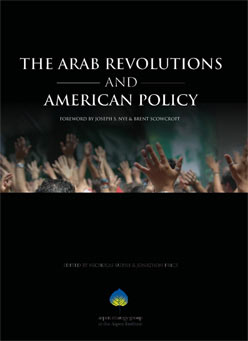The letter below was sent to the White House by members of the Aspen Ministers Forum on July 9, 2018. The signatories are acting in a personal capacity, and this letter does not represent an official position taken by the Aspen Ministers Forum or the Aspen Institute.
The Aspen Ministers Forum, a project of the Aspen Strategy Group, is an initiative of former foreign ministers from around the world and across the political spectrum. The group seeks to develop concrete, non-partisan recommendations to address common global challenges. Through its members in-depth understanding of foreign policy, and continued leadership as members of parliament and advisers to governments, the group has examined and provided recommendations on issues including the fight against terrorism, Middle East peace, humanitarian intervention, and reform of the international architecture.
Dear Mr. President,
We are a group of former foreign ministers who meet regularly to discuss threats to international security and prosperity. We are gravely concerned about the deteriorating relationship between the United States and its Western allies. We are writing to you now, ahead of the NATO Summit and your meeting with Russian President Vladimir Putin, to underscore the need to reverse this dangerous trend.
The Atlantic alliance was forged seven decades ago with strong support from the United States, which saw Europe not as a rival but as a vital partner in building a more prosperous and secure future. Today, NATO is the world’s most successful military alliance. It played an essential role in containing the Soviet military threat during the Cold War. After the fall of the Berlin Wall, NATO reinvented itself – doubling in size, forging new partnerships, putting a halt to ethnic cleansing in the Balkans, and adapting to deal with the threats posed by terrorism and hybrid warfare.
All of NATO’s members benefit from their participation in the Alliance, but the United States is the only country for whom its provision for collective defense has been invoked, which happened after September 11, 2001. For more than 15 years, NATO has led military and training missions in Afghanistan, helping to bring some measure of stability to the country that served as the launching pad for the 9/11 attacks. Afghanistan has been the scene of the longest, most complex and most expensive operation in NATO’s history, with all members and many non-NATO partners contributing troops, equipment, and assistance, thereby reducing the burden on the United States.
As the world’s leading power and most capable military, the United States has always played an outsized role within the alliance. Its global power has been enhanced by being able to position troops in Europe, and to call upon allied capabilities when needed. But over time, the gap between American and European defense investment has put the long-term health of the alliance at risk. You have rightfully expressed concern, as your predecessors did, about this disparity. But now, alliance members have responded.
Secretary General Stoltenberg recently confirmed that all NATO members are now increasing defense expenditures in real terms. About half of all NATO members now have a plan to meet the benchmark of spending 2% of GDP on defense by the agreed upon date of 2024. The European Union has also established a joint defense agreement, which will increase Europe’s security investments and could enhance NATO’s capabilities if a strong cooperative arrangement can be established.
This week’s NATO Summit in Brussels is an opportunity for you to highlight this progress and take some credit for spurring European countries to spend more on defense. There are also important plans which are set to be announced that will significantly boost the Alliance’s readiness and capabilities, complementing the significant investments your administration has already made through the European Defense Initiative. It is vital that leaders on both sides of the Atlantic embrace these proposals and send a message of unity and strength.
A successful NATO Summit would also strengthen your hand ahead of your meeting with President Putin. With regard to Russia, we believe it is important for you and other Western leaders to engage in a clear-eyed, respectful dialogue with President Putin on issues of mutual concern, such as the war in Syria. But an improved relationship with Russia is a means to achieving broader strategic objectives, and not an end in itself.
As your administration’s national security strategy makes clear, Russia is engaged in an effort to weaken U.S. influence and divide it from its allies in Europe. Russia’s actions in Crimea and Eastern Ukraine violated Ukraine’s sovereignty and international law. Its interference in elections around the world has undermined confidence in democracy. To ignore or accept these actions would be a grave mistake, inviting further aggression and instability.
The threats to security and prosperity are multiplying. We believe that the best answer to these challenges is a cooperative and productive partnership between the United States, Canada and Europe. This week, you can move beyond recent signs of acrimony and reaffirm the health and common purpose of the Atlantic alliance. We urge you to seize this opportunity.
Madeleine K. Albright (United States of America), Lloyd Axworthy (Canada), Erik Derycke (Belgium), Lamberto Dini (Italy), Benita Ferrero-Waldner (Austria), Joschka Fischer (Germany), Mircea Geoană (Romania), Marina Kaljurand (Estonia), Donald McKinnon (New Zealand), David Miliband (United Kingdom), Daniel Mitov (Bulgaria), Ana Palacio (Spain), Lydie Polfer (Luxembourg), Malcolm Rifkind (United Kingdom), Jozias van Aartsen (The Netherlands), Knut Vollebæk (Norway).

